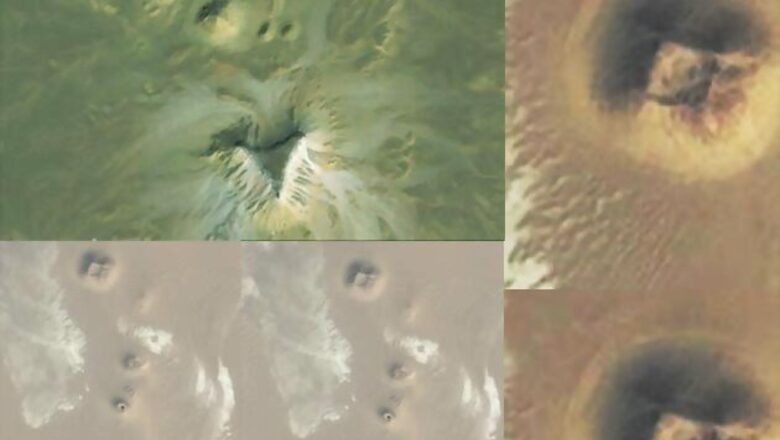
views
Washington: An archaeologist claimed to have discovered two new possible pyramid complexes in Egypt with a large mound almost three times the size of the Great Pyramid of Giza.
Archaeology researcher Angela Micol from Maiden, North Carolina has been conducting satellite archaeology research for over ten years, searching for ancient sites from space using Google earth satellite imagery programme and she found two pyramid complexes in Egypt.
The sites have been verified as 'undiscovered' by Egyptologist and pyramid expert Nabil Selim, the Discovery News reported.
"Located about 90 miles (144 kilometres) apart, the sites contain unusual grouping of mounds with intriguing features and orientations," Angela Micol said.
One site in Upper Egypt, just 19 kilometres from the city of Abu Sidhum along the Nile, features four mounds each with a larger, triangular-shaped plateau.
The two larger mounds at this site are approximately 76.2 metres in width, with two smaller mounds approximately 30.48 metres in width.
The site complex is arranged in a very clear formation with the large mound extending a width of approximately 188 metres almost three times the size of the Great Pyramid.
The Great Pyramid of Giza is the oldest and largest of the three pyramids in the Giza Necropolis bordering what is now El Giza, Egypt. It is the oldest of the Seven Wonders of the Ancient World.
"Upon closer examination of the formation, this mound appears to have a very flat top and a curiously symmetrical triangular shape that has been heavily eroded with time,"
Micol wrote in the website Google Earth Anomalies.
The second possible pyramid complex some 144 kilometres north near the Fayoum oasis, contains a four-sided, truncated mound that is approximately 45 metres wide.
"Located just 1.5 miles (2.4 kilometres) south east of the ancient town of Dimai, the site also contains three smaller mounds in a very clear formation, similar to the diagonal alignment of the Giza Plateau pyramids," Micol said.
"The images speak for themselves. It's very obvious what the sites may contain but field research is needed to verify they are, in fact, pyramids," Micol said.
The Egyptian sites have been sent to Egyptologists and researchers for further investigation.


















Comments
0 comment